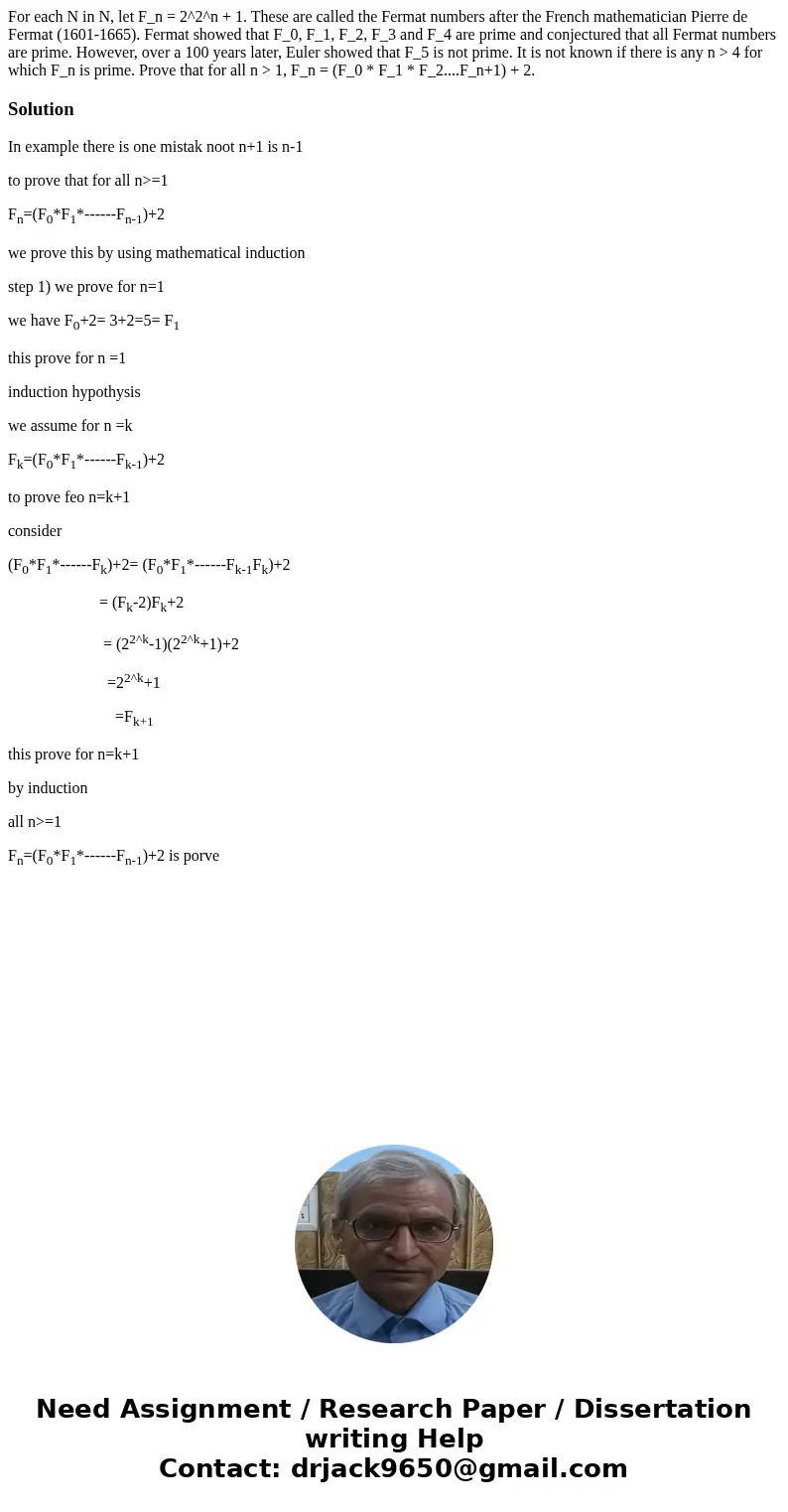For each N in N let Fn 22n 1 These are called the Fermat n
For each N in N, let F_n = 2^2^n + 1. These are called the Fermat numbers after the French mathematician Pierre de Fermat (1601-1665). Fermat showed that F_0, F_1, F_2, F_3 and F_4 are prime and conjectured that all Fermat numbers are prime. However, over a 100 years later, Euler showed that F_5 is not prime. It is not known if there is any n > 4 for which F_n is prime. Prove that for all n > 1, F_n = (F_0 * F_1 * F_2....F_n+1) + 2.
Solution
In example there is one mistak noot n+1 is n-1
to prove that for all n>=1
Fn=(F0*F1*------Fn-1)+2
we prove this by using mathematical induction
step 1) we prove for n=1
we have F0+2= 3+2=5= F1
this prove for n =1
induction hypothysis
we assume for n =k
Fk=(F0*F1*------Fk-1)+2
to prove feo n=k+1
consider
(F0*F1*------Fk)+2= (F0*F1*------Fk-1Fk)+2
= (Fk-2)Fk+2
= (22^k-1)(22^k+1)+2
=22^k+1
=Fk+1
this prove for n=k+1
by induction
all n>=1
Fn=(F0*F1*------Fn-1)+2 is porve

 Homework Sourse
Homework Sourse